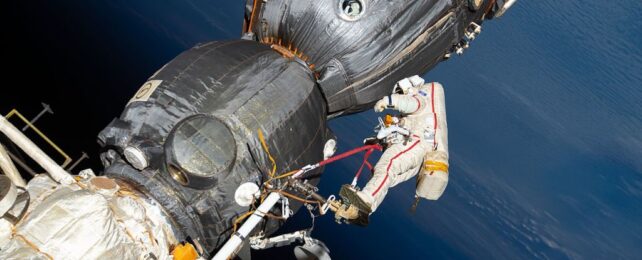Roscosmos cosmonaut Oleg Kononenko has officially become the human being with the most time logged in space, Roscosmos has announced.
As of 4 February 2024, at 08:30:08 UTC, the Russian crew member had cumulatively logged more than 878 days aboard the International Space Station, and counting, over multiple missions since 2008.
The previous record holder, cosmonaut Gennady Padalka, spent 878 days, 11 hours, 29 minutes and 48 seconds in space over the course of five missions between 1998 and 2015.
Kononenko is currently serving his fifth stint aboard the station, having arrived in September 2023, and will remain there until September 2024. By the time he departs, he will have logged a jaw-dropping 1,110 days – just over three years – and become the first human to have spent 1,000 days in space.
"I fly into space to do my favorite thing, not to set records," Kononenko told Russian news agency TASS. "I am proud of all my achievements, but I am more proud that the record for the total duration of human stay in space is still held by a Russian cosmonaut."
One of the reasons the achievement is so impressive is the toll it takes on the astronaut. The usual duration of an ISS flight is around six months, and the physical effects are intense. Most of these – such as the redistribution of fluid around the body in a weightless environment – return to normal upon return to Earth, but some take a little bit longer.
Most notable is the bone density loss and muscle atrophy. Humans in space lose around 1 to 1.5 percent of their mineral bone density in critical areas like the lower limbs and the spine for every month in space, and although the ISS has exercise equipment and crew members each spend around two hours a day exercising, muscle loss is unavoidable.
It takes several years to recover from a six-month spaceflight, and even afterwards, there are ongoing health concerns, such as a higher risk of bone fracture, an increase in erectile dysfunction, and a higher lifetime cancer risk due to radiation exposure.
But there's an emotional toll, too. The isolation can be wearing, as well as time away from loved ones. It takes a lot of fortitude and dedication to join the crew of the ISS.
"I do not feel deprived or isolated," Kononenko told TASS. "It is only upon returning home that the realization comes that for hundreds of days in my absence the children have been growing up without a papa. No one will return this time to me."
The ISS, which saw its first module launched in 1998, is the largest space station ever built, the result of a collaboration between five space agencies: NASA, Roscosmos, the Japan Aerospace Exploration Agency, the European Space Agency, and the Canadian Space Agency.
Due to ongoing tensions between Russia and the US, in 2022 Russia announced a decision to withdraw from the space station by the end of 2024, and build its own. In December 2023 Roscosmos announced that it intended to continue the cross-flight program until 2025.
However, the Russian modules and capsules on the ISS have been problematic for some years now, repeatedly springing leaks of air or coolant.
The ISS itself is nearing the end of its tenure. NASA hopes to begin deorbiting the spacecraft in 2030, by which time new space missions – including the new Roscosmos space station, presumably – should be well underway.
To date, the record for the longest single spaceflight is also held by a cosmonaut, Valeri Polyakov, who spent 437 days and 18 hours aboard the Mir space station in 1994 and 1995.
